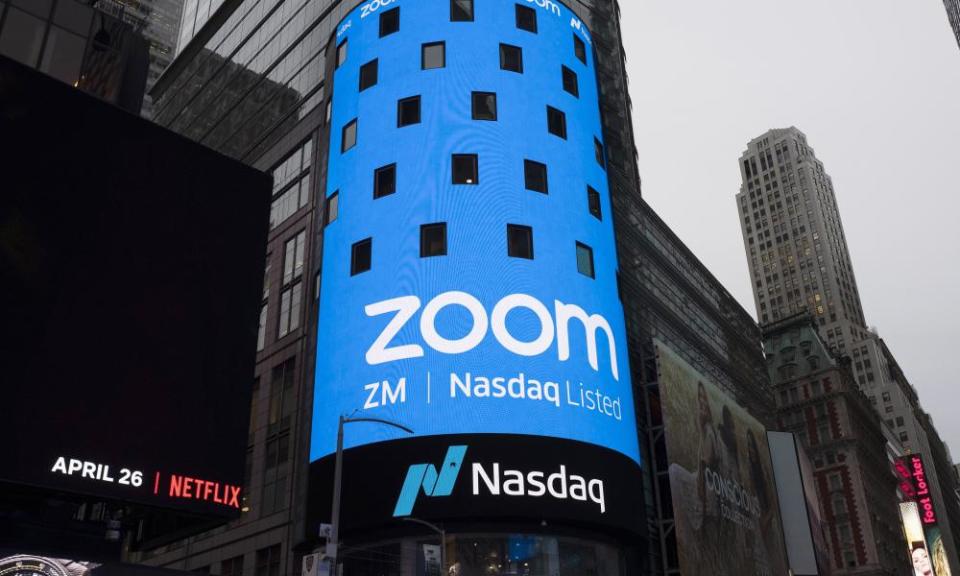Zoom will provide end-to-end encryption to all users after privacy backlash

The video conferencing platform Zoom announced on Wednesday it has reversed course and decided to provide end-to-end encryption to all customers, not just those who pay for a subscription.
Related: Zoom admits cutting off activists' accounts in obedience to China
The popular app faced criticism from civil rights groups for its plans to exclude free calls from encryption services, which secure communication so they can only be read by the users involved.
The company’s CEO, Eric Yuan, had explained that Zoom planned to exclude free calls from end-to-end encryption to make sure it is still possible to “work together with FBI, with local law enforcement in case some people use Zoom for a bad purpose”.
But “basic security shouldn’t be a premium feature that’s only available to wealthy individuals and big corporations,” Evan Greer, the deputy director at the digital rights advocacy group Fight for the Future, said at the time.
Zoom changed its decision after speaking with civil liberties organizations, child safety advocates, encryption experts, government representatives, and users, Yuan said in a statement announcing the change. The enhanced encryption will be available starting in July.
The video platform exploded in popularity after coronavirus-related lockdowns and is now seeing as many as 300 million daily users, up from just 10 million in December.
Meanwhile, it has wrestled with whether encryption would obscure the identity of users and affect its ability to enforce security measures on the app. Zoom has faced continuing instances of “Zoom-bombing”, in which trolls attack users on the app with slurs and offensive imagery. Zoom added security measures in response.
To address these concerns while still allowing for encryption and privacy, Zoom will require free users to sign up using a phone number to receive a one-time text message verification.
Zoom previously falsely advertised itself as using end-to-end encryption and, once caught, confirmed in a blogpost that end-to-end encryption was not possible on the platform.
Meetings will use a different style of encryption by default. For more privacy, hosts will have to manually turn on end-to-end encryption. Hosts on Zoom will be able to turn encryption on and off depending on the meeting.
“We encourage everyone to continue to share their views throughout this complex, ongoing process,” Yuan said.

 Yahoo Finance
Yahoo Finance